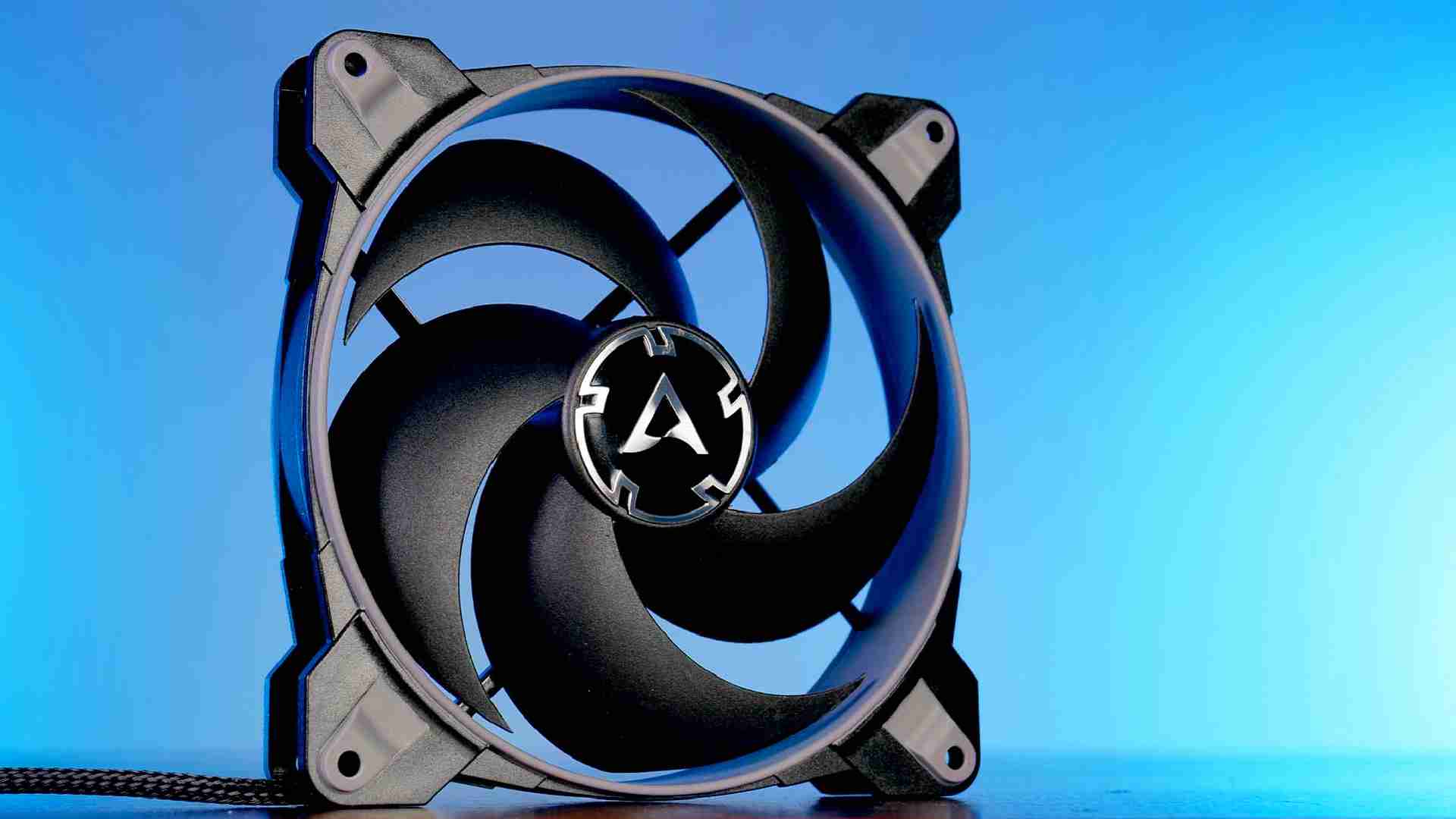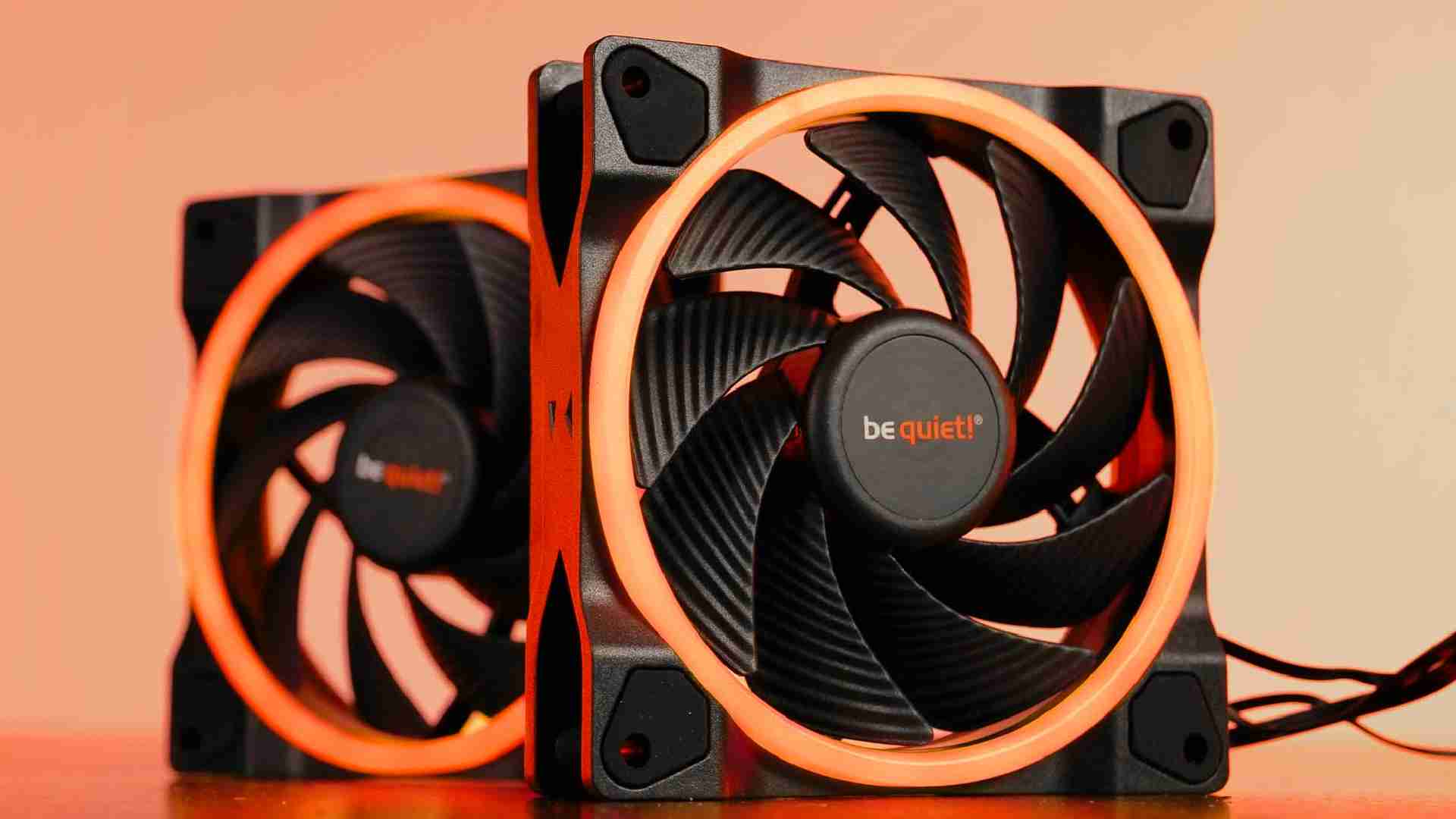Gelid Glacier RGB Review
Introduction
What happens if we take two of Gelids Stella Fans, and slap them onto a dual tower heatsink? Exactly, one hell of a thick cooler. Let's see how well one of Gelids biggest coolers turned out!
Positive
- Excellent Max Performance
- Very good Noise-to-Performance
- Price
Neutral
- Looks Standard RGB-isch
Negative
- No Brackets for Tripple-Fan mode
- Fans could be quieter
What's in the Box?

Gelid's biggest Glacier RGB cooler comes in the usual CPU cooler packaging like most other coolers out there. Once the box is opened and everything put on the table, we will be greeted with the following items:
- Gelid Glacier RGB Heatsink
- 2x Gelid Stella Fans
- 2x Fan Brackets
- Thermal Paste
- Mounting Hardware Intel
- Mounting Hardware AMD
- 2-1 PWM splitter
Below, we summarized the most important specs:
| Name | Gelid Glacier RGB |
| Dimensions | 132x120x151mm (LxWxH) |
| Fan | Gelid Stella |
| Fan Connection | PWM |
| Fan Airflow | 70CFM |
| Fan Speed | 1600RPM |
| Fan Air Pressure | 1.3mm/H2O |
| RGB | Yes (both Fans) |
| RGB Connection | 3-pin ARGB (Daysichainable) |
Compatibility
Due to the Glacier RGB being slightly on the older side, we do have a lot of older sockets natively supported. However, as of now, we are unaware of any LGA 1700 support for the near future. This might of course change at any moment.
Down below you will find a complete compatibility list:
| AMD | Intel |
| AM4 | LGA 1200 |
| AM3/+ | LGA 115x |
| AM2/+ | LGA 2066 |
| FM2/+ | LGA 2011 |
| FM1 | LGA 1366 |
| LGA 775 |
Individual Components
Fan

The Fans used on the Gelid Glacier RGB are Gelid's in-house-made Stella Fans.
As the Stella Fans had their own independent review, we will not cover them completely here. However, we do want to point out that we initially did not have the impression that these would be amazing heatsink fans. Due to their 1.3mm/H20 static pressure, these seem to be more on the case-fan end than anything else.

On the design side, the RGB implementation on the Stella fans is pretty basic and white-label-like. Half of the RGB is being omitted through the central part of the fan while the rest of the 24 LEDs are distributed across 2 rings, one seeable from each side of the fan.

The Fans are powered by a PWM signal which can be split using the included 2-1 splitter. For the light show, the Stella fans are designed with an ARGB splitter attached right at the end of its own ARGB cable. This way, both fans can be powered in every way using a single PWM and a single ARGB header.
Heatsink

The Heatsink used for Gelid's biggest yet air cooler is a Dual Tower U- shaped design using a total of 6- heat pipes.
All 6 of the copper heat pipes are touching the CPU die directly in order to transport as much heat as possible to the heatsinks above.

Except for the heat pipes themselves, the complete heatsink is painted in an Aluminum finish silver color.
Appearance

Overall, the Glacier RGB's design resembles many coolers we've seen before.
But this is probably due to the white-label design created by the Stella fans.
While the RGB implementation of the Stella fans seems to be pretty standard and not highly interesting, the heatsink itself looks quite powerful and even promising.

Although it is not the exact version we're using, we are thankful that a Glacier-Black version exists for the people who want to skip on the Aluminum colored Heatsink, something that we would also like to do.
Benchmark
We benchmarked the Gelid Glacier RGB on our usual testbench using a Ryzen 3900x.

While letting both fans spin at their max 1600 RPM, the Glacier managed to keep the 3900x at 49°C.
Surprisingly for us, we were very wrong about the Fan's potential as heatsink fans.
While the Glacier may not top the list, it is only a single degree behind the best-in-class Noctua NH-D15.
But while that is already pretty scary, the Galcier should actually be compared to a cooler like Silverstone's Hydrogon D120, a cooler which utterly lost against the Glacier's superior performance.

On the Noise-to-Performance end, it turns out that the Glacier did not brute force its way up the ladder. Actually, the Glacier's position remained the same, just a tick behind the Noctua NH-D15 in every regard. A very positive result.
Conclusion

Once in a while, we get a device where we assume, based on the stats and looks, that in a best-case scenario, the device will turn out average. However, once in a while, the device actually shocks us and outperforms our expectations multiple times while it climbs up the ladder in both max performance and Noise-to-Performance.

The Gelid Glacier RGB is exactly such an example.
Although the overall design might look 2015-ish Aliexpress, it turns out that this -helplessly looking- cooler is just a small tick behind a beast like the NH-D15.

But what shocked us more about this is the price tag. At roughly 45€, we are happy to overlook the design, the aluminum finish on the heatsink, or any other point for that matter.
The Performance and Noise-to-Performance paired with a 45€ pricetag is reason enough to absolutely recommend this cooler to anybody who is looking for a powerful cooler strong enough to cool down any nowadays available consumer CPUs.


be quiet! Silent Wings 4 High-Speed 120mm Review
In this review, we will take a closer look at be quiet!s newest high-end case fan, the Silent Wings 4 High-Speed. At 2500RPM
Read More
Arctic BioniX P140 Review
Arctics BioniX series already proved itself to be an overpowered version of their Normal P and F counterparts. After the 120m
Read More
be quiet! Light Wing 120 High Speed Review
After many years of pure blackness, be quiet! finally went RGB. With the newest Light Wing PWM High-Speed, be quiet! tried th
Read More
Cougar Poseidon GT 360
Thanks to Cougars new UTTERIGHT approach which increases the contact area of the fins and water channel, Cougar believes to h
Read More